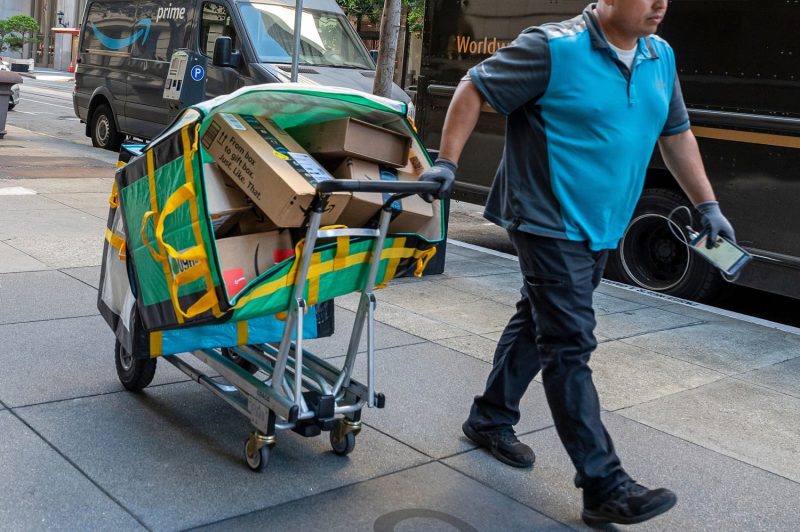
DC Attorney General Takes Legal Action Against Amazon for Discriminatory Prime Delivery Practices
In a recent headline-making development, Amazon finds itself being sued by the Washington, D.C. Attorney General for allegedly discriminatory actions related to its Prime delivery service. This move by the D.C. AG comes as a significant legal challenge for the tech giant, with potential repercussions that could impact not only the company but also consumers and communities at large. While Amazon’s Prime delivery service has revolutionized the way millions of customers receive their orders, the allegations of excluding certain neighborhoods from this service raise important questions about equity, access, and corporate responsibility.
One of the key issues brought up by the lawsuit is the allegation that Amazon deliberately excluded predominantly Black and Brown neighborhoods from its Prime delivery service. This raises concerns about potential systemic racism and socioeconomic discrimination that may be at play within the company’s operational policies. By allegedly limiting access to its premium delivery service based on the demographics of certain neighborhoods, Amazon may have inadvertently perpetuated existing inequalities and further marginalized disadvantaged communities.
Furthermore, the lawsuit asserts that Amazon’s actions have had tangible negative impacts on residents of the affected neighborhoods. Access to expedited delivery services can significantly enhance convenience and quality of life for customers, especially those with mobility challenges, limited access to transportation, or busy schedules. By denying these benefits to specific communities, Amazon may have deprived residents of essential services that could improve their daily lives and overall well-being.
The legal battle between Amazon and the D.C. Attorney General underscores the importance of transparency, accountability, and ethical business practices in the modern corporate landscape. As one of the world’s largest e-commerce companies, Amazon wields significant influence over the retail industry and plays a crucial role in shaping consumer behaviors and expectations. With this influence comes a heightened responsibility to ensure fairness, inclusivity, and non-discrimination in its business operations.
Beyond the immediate legal implications, this lawsuit also catalyzes broader conversations about corporate social responsibility and the ethical dimensions of technological innovation. As technology companies continue to disrupt traditional industries and reshape the ways in which we live and work, it becomes increasingly vital for these companies to prioritize ethical considerations and social impact alongside profit-making goals. The outcome of this legal battle could set a precedent for how tech giants are held accountable for their actions and the potential societal impact of their business decisions.
In conclusion, the lawsuit filed by the Washington, D.C. Attorney General against Amazon for allegedly excluding neighborhoods from its Prime delivery service raises important questions about equity, access, and corporate responsibility in the digital age. As this legal battle unfolds, it serves as a stark reminder of the complex interplay between technology, business, and social justice, and the need for companies to proactively address issues of discrimination and inequality within their operations. How Amazon responds to these allegations and navigates the ensuing legal proceedings will not only impact its own reputation but also set a precedent for how the tech industry as a whole handles similar challenges in the future.
